Njamito Goes Fairtrade for Cocoa and Vanilla
March 31, 2025Njamito is now Fairtrade certified for cocoa and vanilla! Here’s what that means for farmers, the planet, and the values behind our meal-in-a-bottle.
Read articleJoin us in Sanad as we introduce stripcropping: a new approach to farming for healthier crops and a greener future.
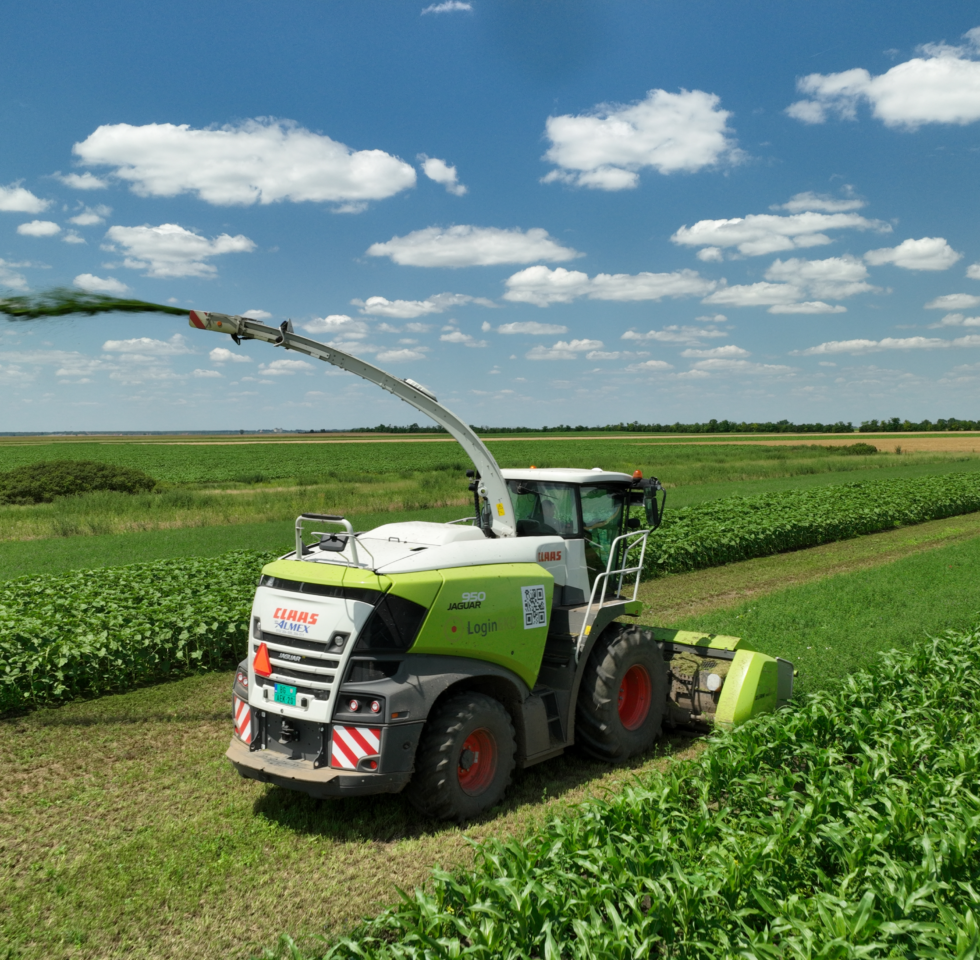
An innovative farming technique is underway in the fields of Sanad, where LoginEKO is pioneering an agricultural experiment that could reshape how we grow our crops. Stripcropping, the method being tested, offers a promising solution to reduce plant diseases, enhance crop yields, and foster biodiversity, all while promoting sustainable farming practices.
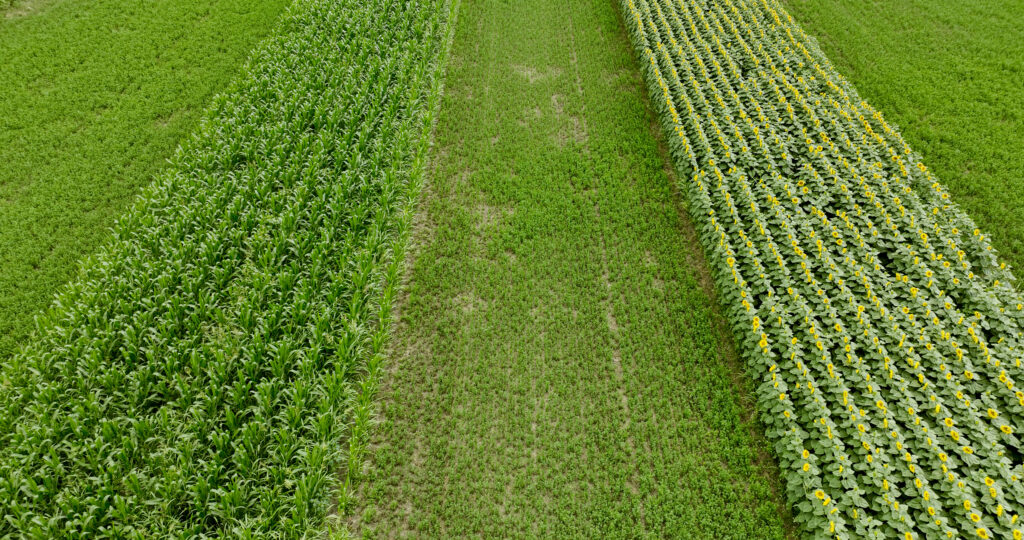
At the heart of stripcropping lies a simple yet clever idea – dividing large fields into strips and planting different crops in each strip. This strategy is proving to be a game-changer, and minimizes the risk of plant diseases spreading across the entire field. By planting crops like alfalfa, sunflower, and corn in alternating strips, we are creating a more resilient ecosystem where disease outbreaks are less likely to occur.
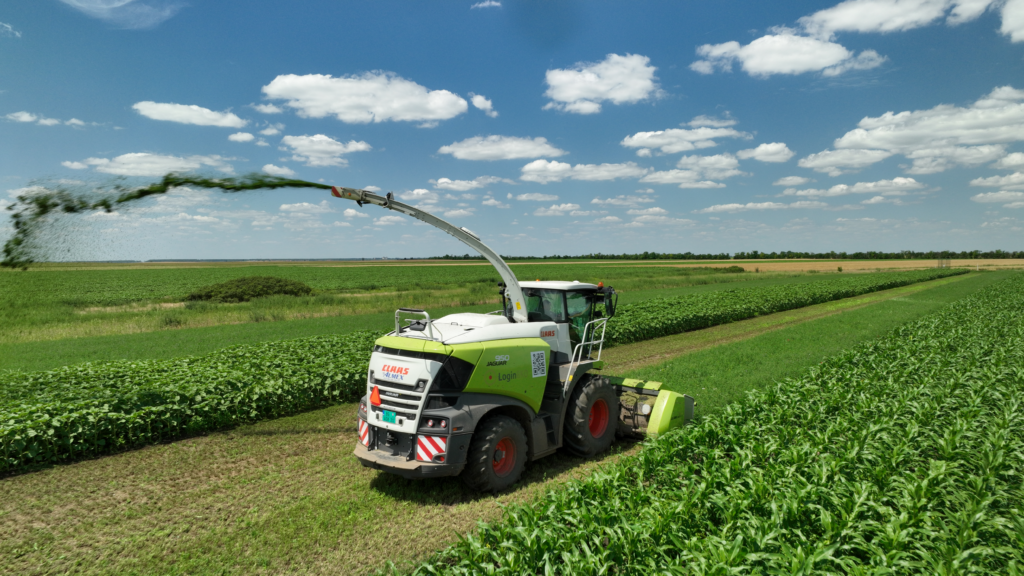
The use of alfalfa, a drought-tolerant and nitrogen-rich legume, is a key component of this method. Alfalfa’s multi-cut and perennial nature makes it a reliable source of organic nitrogen. Harvesting alfalfa and transferring it to adjacent sunflower or corn strips through specialized machinery ensures a consistent supply of nitrogen, benefiting both our current and future crops.
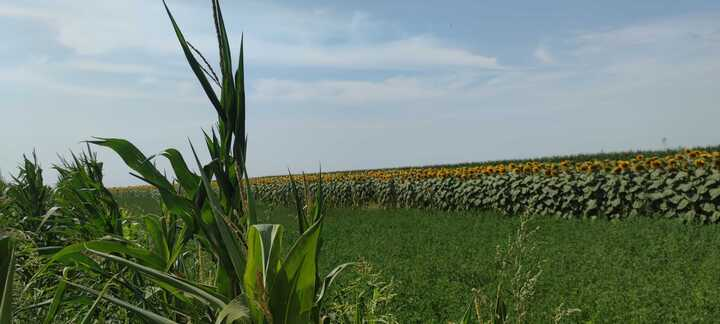
While stripcropping aligns seamlessly with organic farming principles, its advantages are not exclusive to organic producers. Conventional farmers can also reap the rewards by adopting this approach. Lowering costs and increasing productivity are just some of the benefits awaiting those who embrace this innovative technique.
One of the standout features of stripcropping is its potential to foster biodiversity. Unlike the conventional practice of growing vast stretches of a single crop, stripcropping invites a harmonious coexistence of different crops within the same field. This diversity not only enriches the soil, but also provides a sanctuary for various species, and contributes to a healthier and more balanced ecosystem.
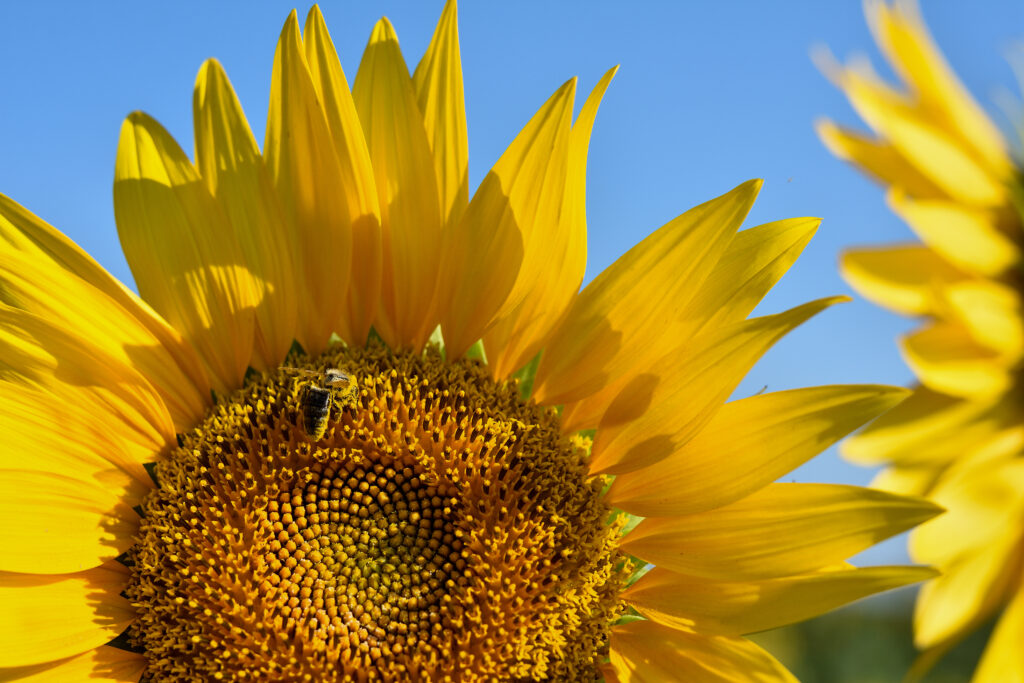
LoginEKO’s trial field in Sanad symbolizes a step towards a more sustainable future. As the global community grapples with the challenges posed by climate change and environmental degradation, initiatives like stripcropping serve as a beacon of hope. By embracing such innovative and environmentally conscious practices, we inch closer to a world where agriculture and nature work hand in hand.
To sum up, the our fields on Sanad are now a testing ground for a revolutionary idea that could reverberate far beyond their borders. Stripcropping has the potential to not only transform farming practices, but also inspire a broader shift towards a more harmonious relationship between humanity and the planet. As we tend to our experimental crops, we are also sowing the seeds of a brighter and more sustainable tomorrow.
Njamito is now Fairtrade certified for cocoa and vanilla! Here’s what that means for farmers, the planet, and the values behind our meal-in-a-bottle.
Read articleIdealism met reality as we launched our meal-in-a-bottle, Njamito. After 100.000 bottles sold, here’s what we learned about organic food and market adaptation.
Read articleWith organic seeds in short supply, we launched our own organic seed production journey to secure sustainable farming practices.
Read article